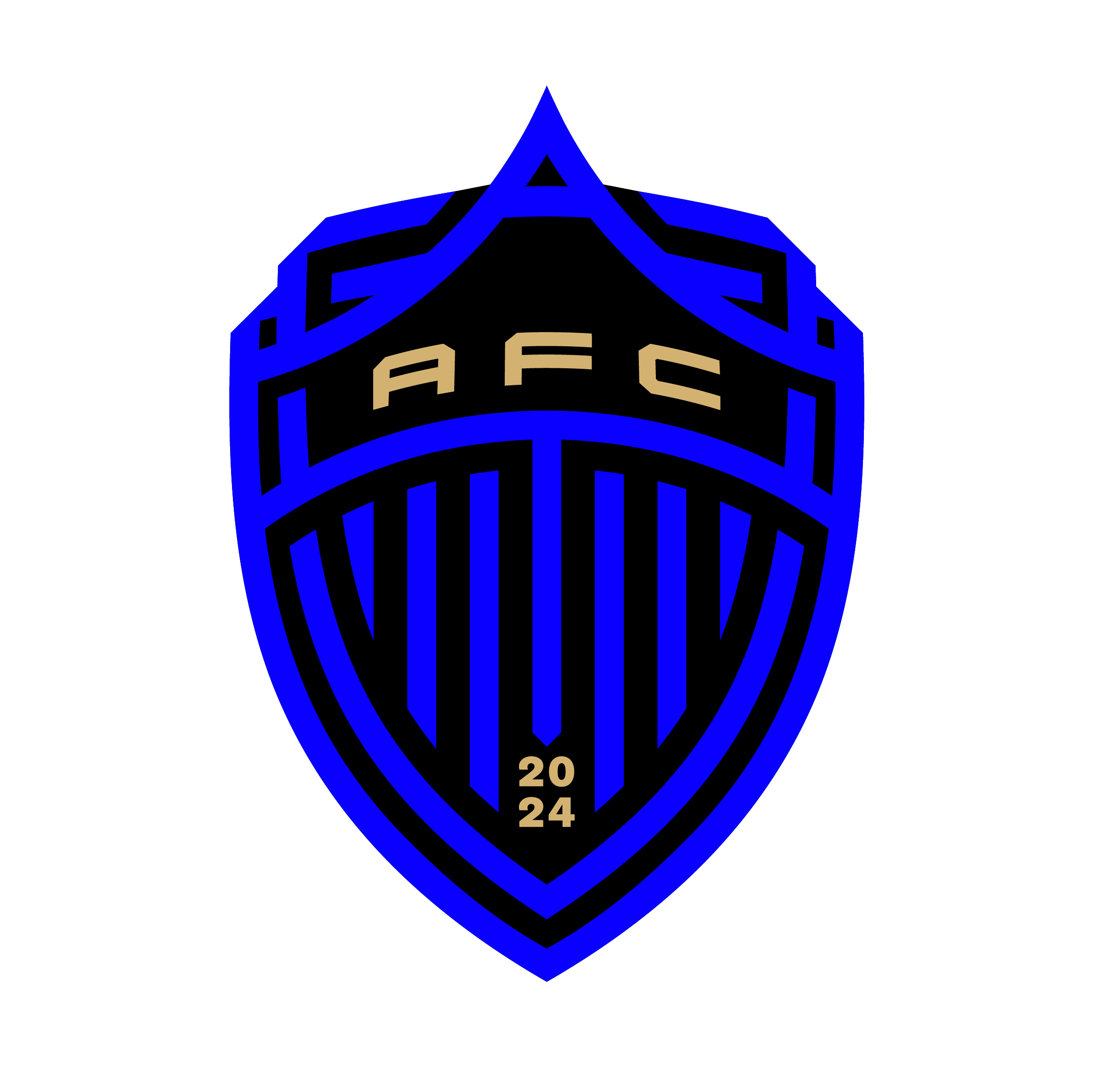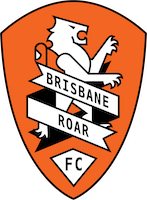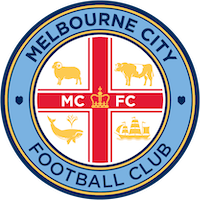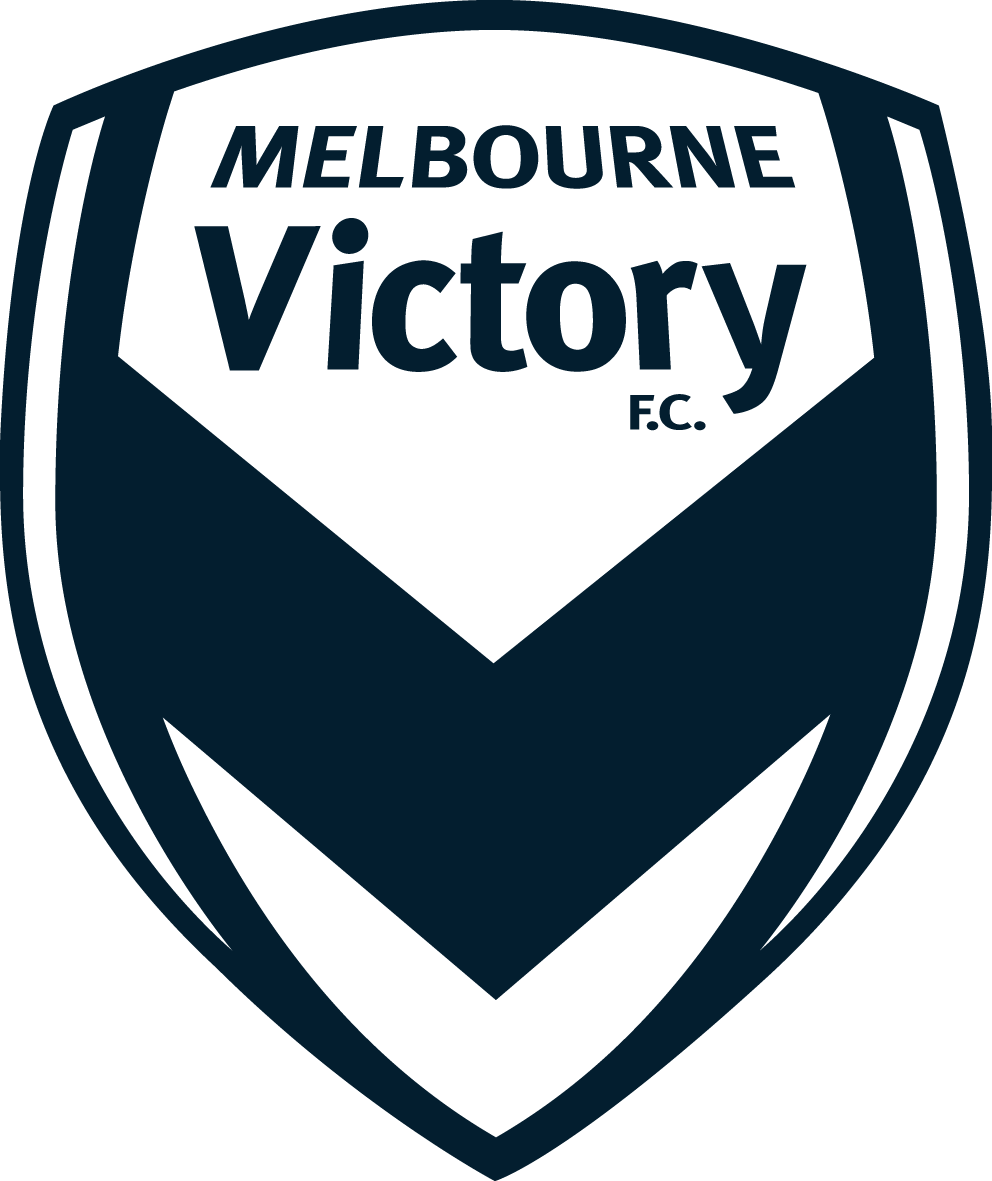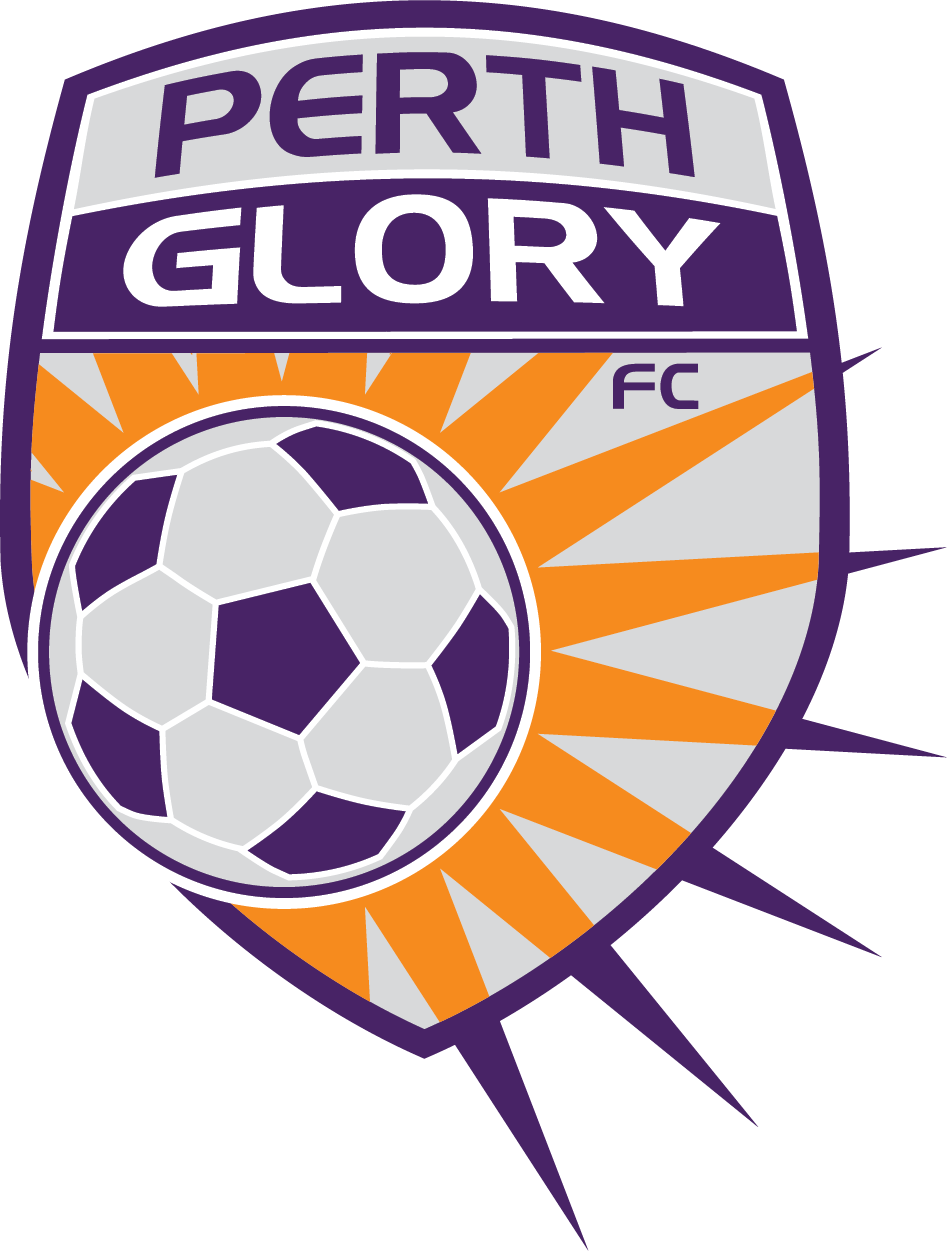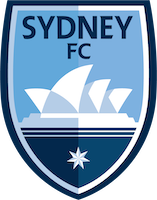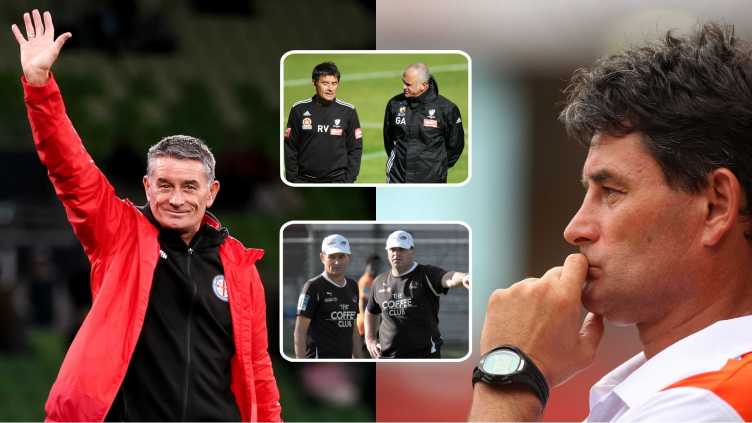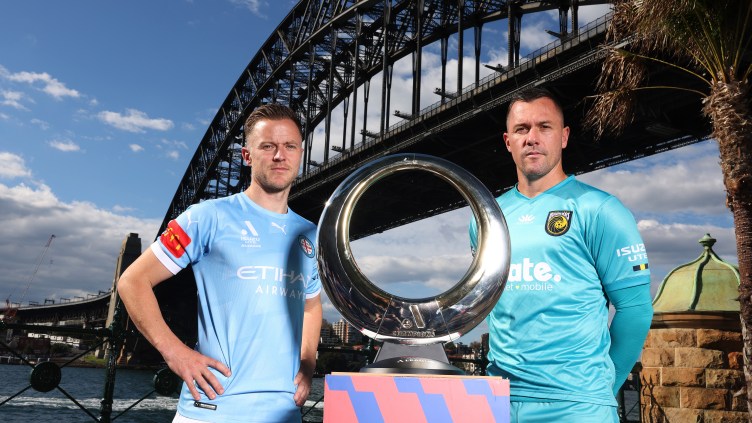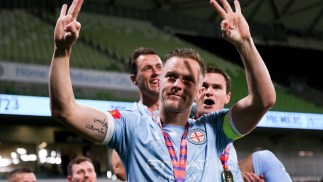Rado Vidosic has been around Australian football for decades. As he tries to bring more silverware to Melbourne City, the veteran coach shares his fascinating journey with KEEPUP’s Sacha Pisani.
Rado Vidosic’s story is one of patience and perseverance.
He was there for the inaugural 2005-06 Isuzu UTE A-League campaign. 18 seasons on, the 61-year-old is in the hotseat, preparing for his first Grand Final as a head coach with Melbourne City.
BUY TICKETS TO THE GRAND FINAL

BUY TICKETS TO THE GRAND FINAL
In the space of seven months, he has gone from coaching City women’s star-studded team to a surprise interim mid-season men’s appointment in the wake of Patrick Kisnorbo’s Troyes switch – and he now has the three-time reigning premiers 90 minutes away from a second Championship.
“There is a club for every coach,” Vidosic told KEEPUP ahead of Saturday’s blockbuster decider against Central Coast Mariners. “I was fortunate enough that PK decided to leave when he did. We were preparing for our first trip to Wellington with the women’s team when I got a phone call from Michael Petrillo and (he) told me what’s happening.
READ MORE ON KEEPUP
ISUZU UTE A-LEAGUE GRAND FINAL: Everything you need to know
GRAND FINAL PARTY: Are you ready Sydney?
MAX BALARD: A ‘crazy’ journey through four countries to Gosford
MELB CITY: Two incredible stories sum up their rise
JAMIESON’S RETIREMENT: The moments with his son that will stay with Scott Jamieson for a lifetime
“I wasn’t even aware of it because where we are working the female side of the club was 500-600m away from the men’s in the rugby pavilion so they could be on their own.
“When the call came, I was shocked. I didn’t know what to say but I had to say yes because the club has given me the opportunity to work here and help the academy. It’s bigger and bigger, and I was part of growing it.
“I just could not say no. I didn’t expect it was going to go as far as it went. I wasn’t sure if there was someone else coming in from CFG (City Football Group) – it’s an enormous group. But when we started, I brought in my view on training sessions, we changed maybe the length and intensity, new practices.
“I think everyone was a bit excited about the change. Sometimes they say change is as good as a holiday.
“From potentially a short period of time it went longer and longer, and then one day I was offered an extra two years. You can’t say no to such a great opportunity to work at such a big club with beautiful players.”
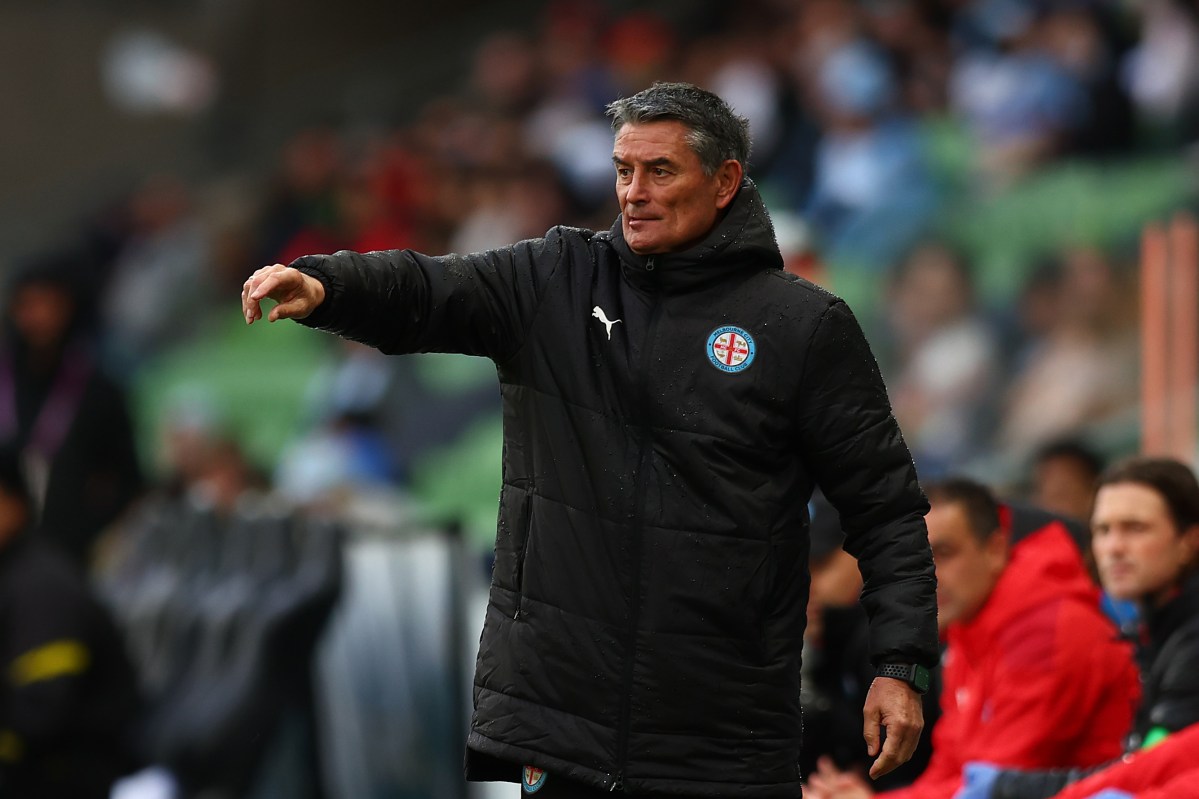
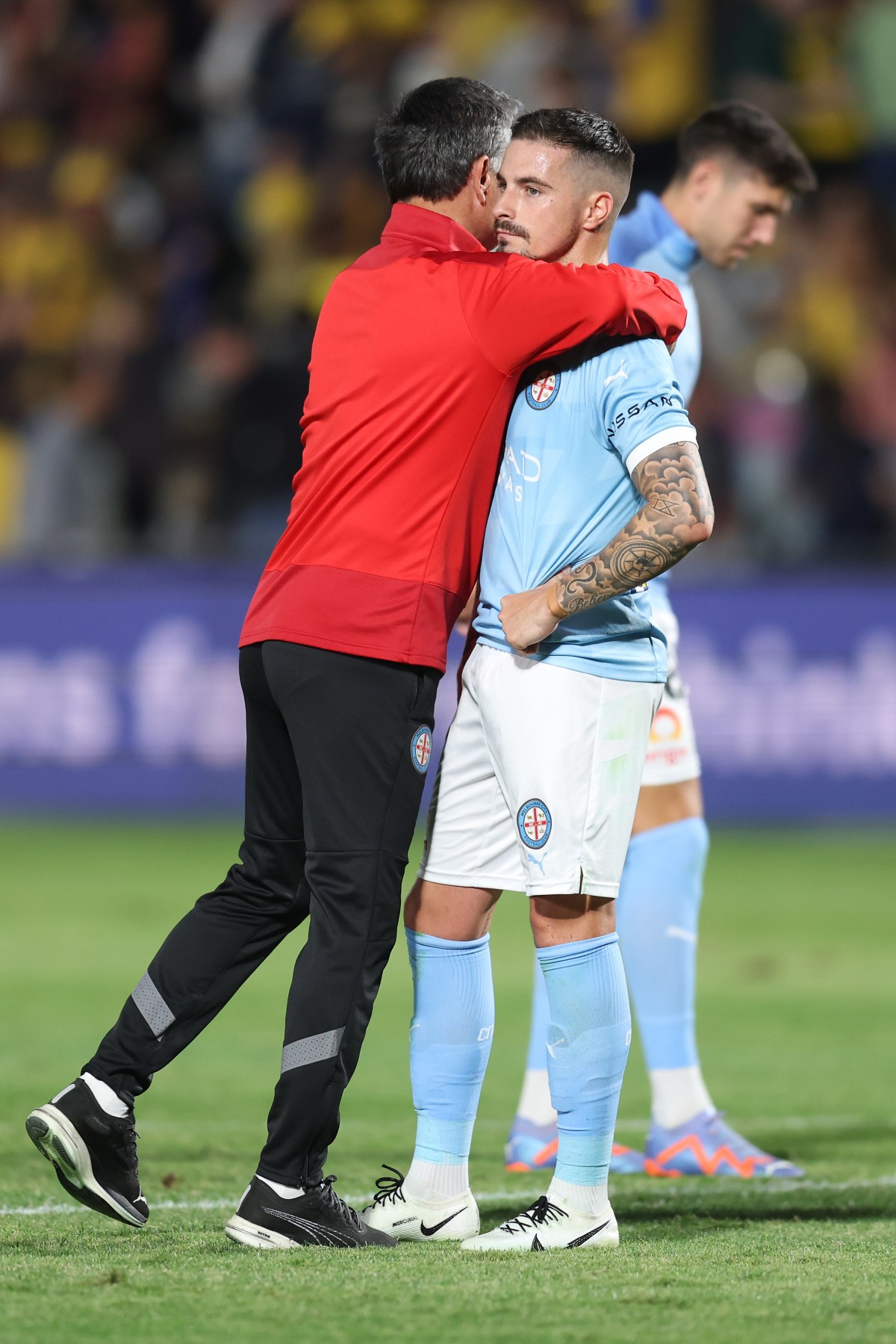
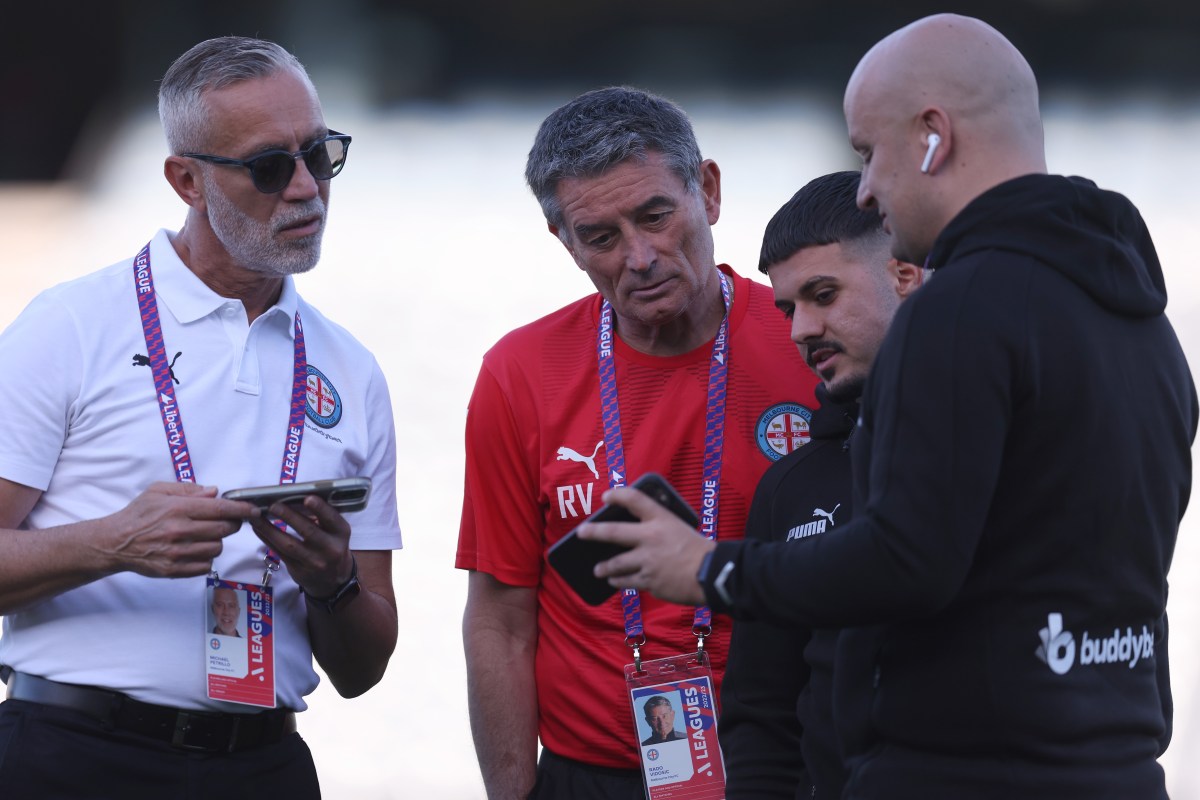
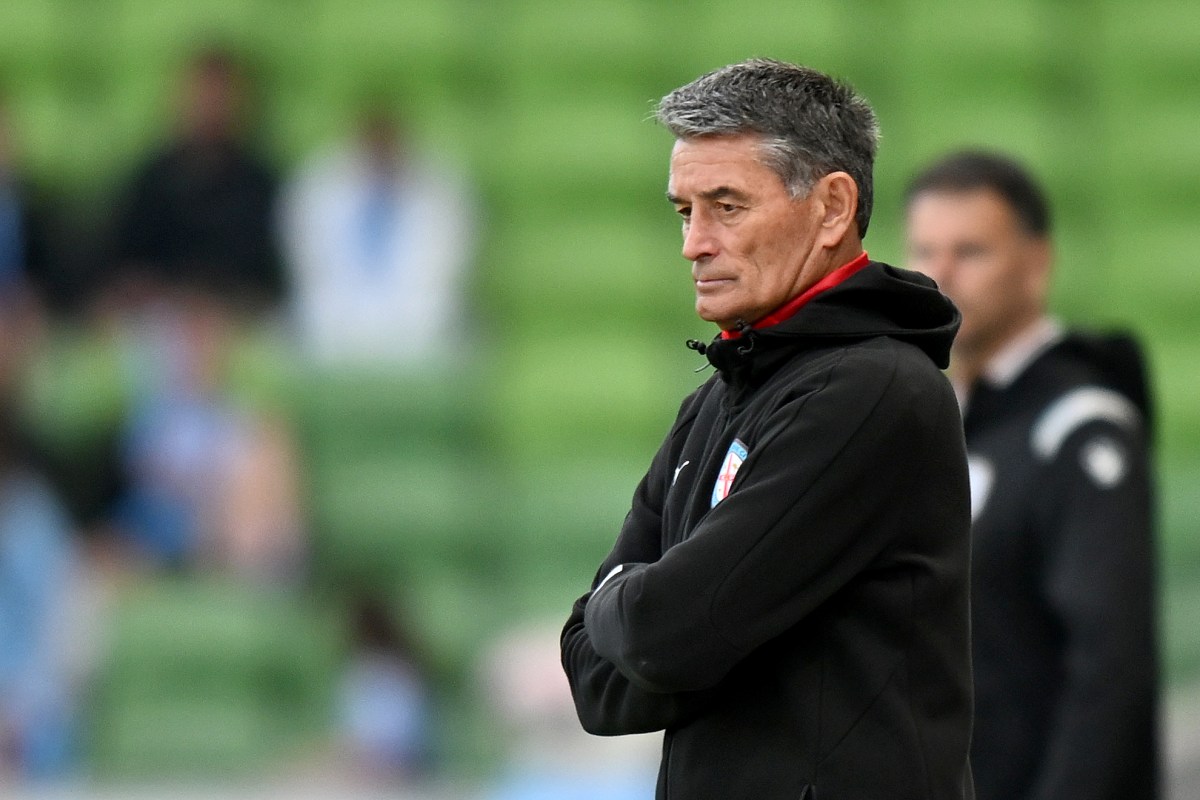
Vidosic’s journey goes back way further than the A-Leagues.
Born in Osijek, Croatia in 1961, Vidosic spent four years playing at academy level but it never progressed beyond that. University was his number one priority at the time as he aimed to become a PE teacher. With that in mind, it is perhaps no surprise he actually started coaching at the age of 18.
There was also a compulsory stint in the army in between playing football.
“Just before I joined the army, we had several months free time from finishing high school,” Vidosic said. “I organised a local academy team that existed close to where I lived.
“I got these kids from the street and put them into a team. We started a competition. Unfortunately I had to leave and a friend of mine continued without me. It was my first experience of coaching as an 18-year-old. I could hardly tie shoelaces and I was already coaching (laughing).”
Exposed to a ground-breaking way of playing at a young age, Vidosic always wanted to become a coach.
“I was privileged back home that I had some fantastic coaches. Back then, the pressing just started. I think I was just 17-18 when that was introduced at our junior level. It was like wow, this is unbelievable. That stayed with me,” he recalled.
“How can we get players to be fitter? How can they be more mobile? How can they apply pressure immediately when they lose the ball? All those things went through my head even then.
“This was something that was new to every single one of us because generally it would be block defending those days. It was something new. I was fortunate enough that I had coaches who were keen to exploit that and teach us to play that way.
“That was something that always stayed with me. When I started coaching in Australia, I was one of the rare coaches that played pressing, even at rep level.
“We went to the national titles with Queensland, (and) won two national titles by being that aggressive and playing the pressing style that not many teams did. We could see it could have benefits from a results point of a view and a players point of view.”
Moving to Australia
Vidosic has called Australia home since 1988, but it could have been very different had a former teammate in Croatia had a change of heart.
Brisbane Lions (now known as Lions FC) were looking for recruits. They identified one player and ended up with Rado Vidosic.
The rest is history.
“What happened was I was playing back in my hometown and there was actually another player who got an invitation to play for Brisbane,” Vidosic recalled.
“He didn’t want to go so he asked me if I wanted to go. I got in touch with his people and a few weeks later, I was flying from Belgrade to Tokyo, from Tokyo to Sydney, from Sydney to Brisbane. I think it was the world’s longest trip to Australia.
“Those days it was an expo in Brisbane – 1988 it was 200 years of Australia’s’ existence. There was a big celebration in Brisbane so there were no flights. I arrived on Saturday morning and at midnight, it was the last time to register players for the season.
“I arrived just in time to be registered. Unfortunately we got relegated that season (in) the equivalent of NPL1.”
Vidosic continued playing up until 1992, before turning his attention to coaching the following year.
His first steps in Australian coaching were at Rocklea United (now known as Brisbane Knights) in Queensland.
“(I) started as youth-team coach, then took over (the) youth team and reserve team. Towards end of the season, I coached youth team, reserve team and the first team. We lost all the coaches and I was the only one left standing.
“(It was) quite a busy time. It looked like it helped me in the long run. It was the wild west at that time. It was useful for me to learn.”
The first season & working with Postecoglou at ‘Roarcelona’
Vidosic was there for the start of the Isuzu UTE A-League 18 years ago as Miron Bleiberg’s righthand man at Queensland Roar.
He knew Queensland football inside and out, having also previously coached the Brisbane Southern Districts rep team for seven years. He had also led the state’s Under-15 and U16 sides while also heading the football program at the Cavendish Road High School.
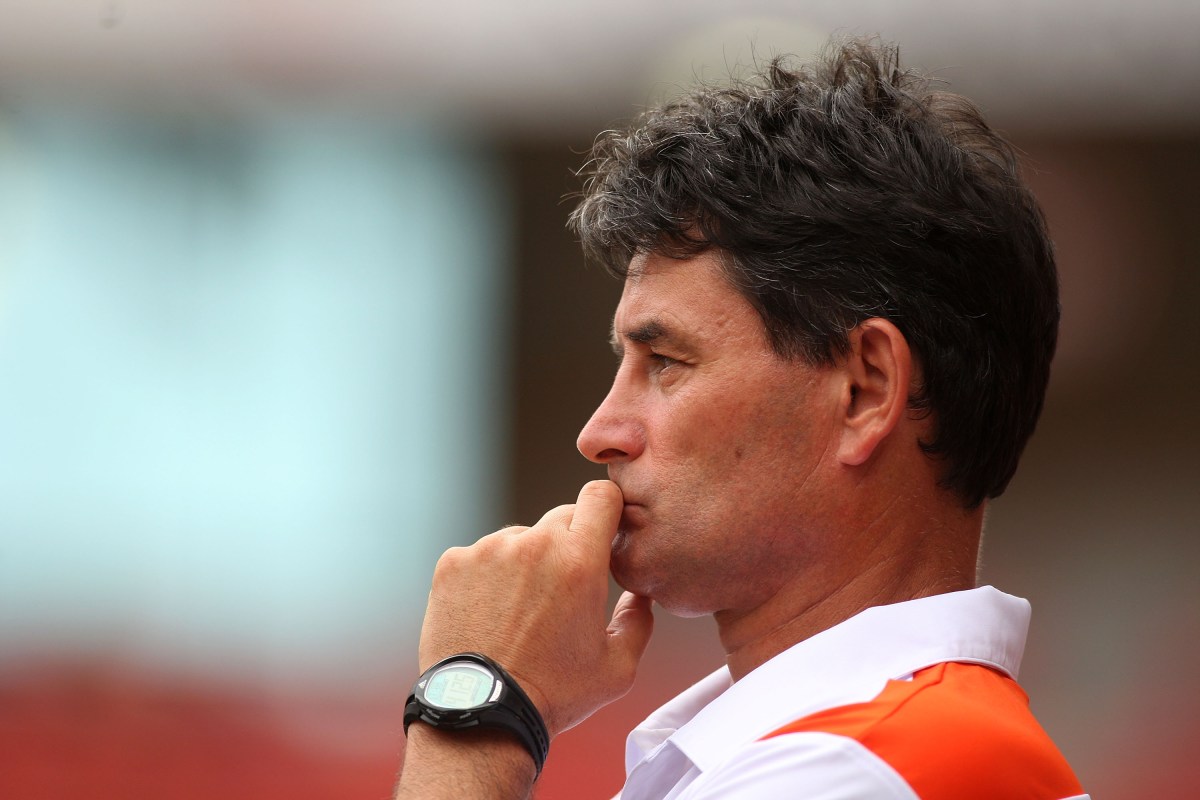
“I remember it like it was yesterday. I went for an interview to become reserve-team coach at Brisbane Lions – in those days it was equivalent to NPL,” Vidosic recalled. “I got the job and one year later, Brisbane Lions applied for an A-Leagues license and we got it.
“Instead of being reserve team coach, Miron asked me to be his assistant. I was still working full-time as a school teacher, so I was a part-time assistant coach. All the training sessions were in the afternoon because I could only work in the afternoon.
“When Frank Farina came, I became full-time and then in the third year, I became a youth-team coach as well. I was assistant, youth-team coach and video analysis. That helped me a lot because I had to do so much with young player, with all the players, I had to do analysis.
“That helped me to become who I am today. From organising training sessions, running the team, travelling, national youth league team, experimenting with some of my ideas, following instructions from the head coach.
“Once Ange (Postecoglou) came, he stopped me from being involved with the youth league. I was only doing the assistant role and video analysis.”
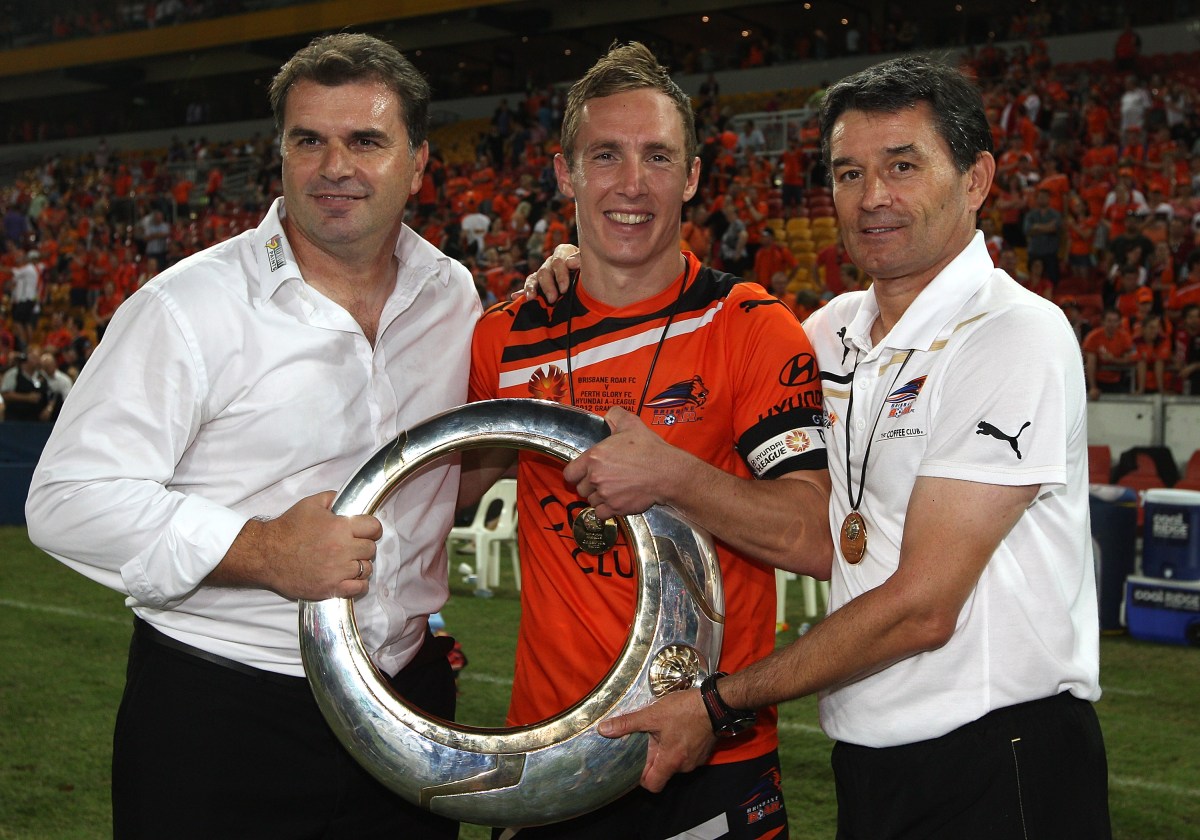
Vidosic was part of Brisbane Roar’s most successful era, featuring back-to-back Championships and that record-breaking 36-game unbeaten streak.
Ange Postecoglou, with Vidosic by his side, transformed Australian football during his tenure with a team dubbed ‘Roarcelona‘.
Now, Postecoglou has Celtic on the cusp of a Scottish treble amid links with Premier League outfit Tottenham.
“It was a fantastic experience to work with him,” Vidosic recalled, having also spent a brief period in charge of the team in 2012 after Postecoglou’s departure to Melbourne Victory.
“At the time it was 2008-09, 2010, probably the richest and most successful time in Barcelona’s history.
“Both of us loved how Barcelona played and that was the reference point for everything we did at the time, it was from that Pep Guardiola team.
“It was a big influence on the way we tried to play. Ange was fantastic as a leader, as a coach, as a friend he was great to all of us.
“He helped all of us to improve. He was such a great influence on a lot of people, when people get a chance to work with him.”
Discovering Besart Berisha
An instrumental piece of Brisbane’s puzzle in their title defence was the signing of Besart Berisha.
The Roar lured Berisha from Arminia Bielefeld to Brisbane in 2011. In his first season, the Kosovo international scored 21 goals to lead the club to their second straight Championship.
Regarded as one of the A-Leagues’ finest imports, he went on to win two Championships and a Premiership at Suncorp Stadium, plus a Golden Boot. Then, he added another four titles and another Golden Boot to his name at Melbourne Victory.
Berisha retired as the league’s all-time leading goalscorer in 2021 before City talisman Jamie Maclaren broke his record this season.
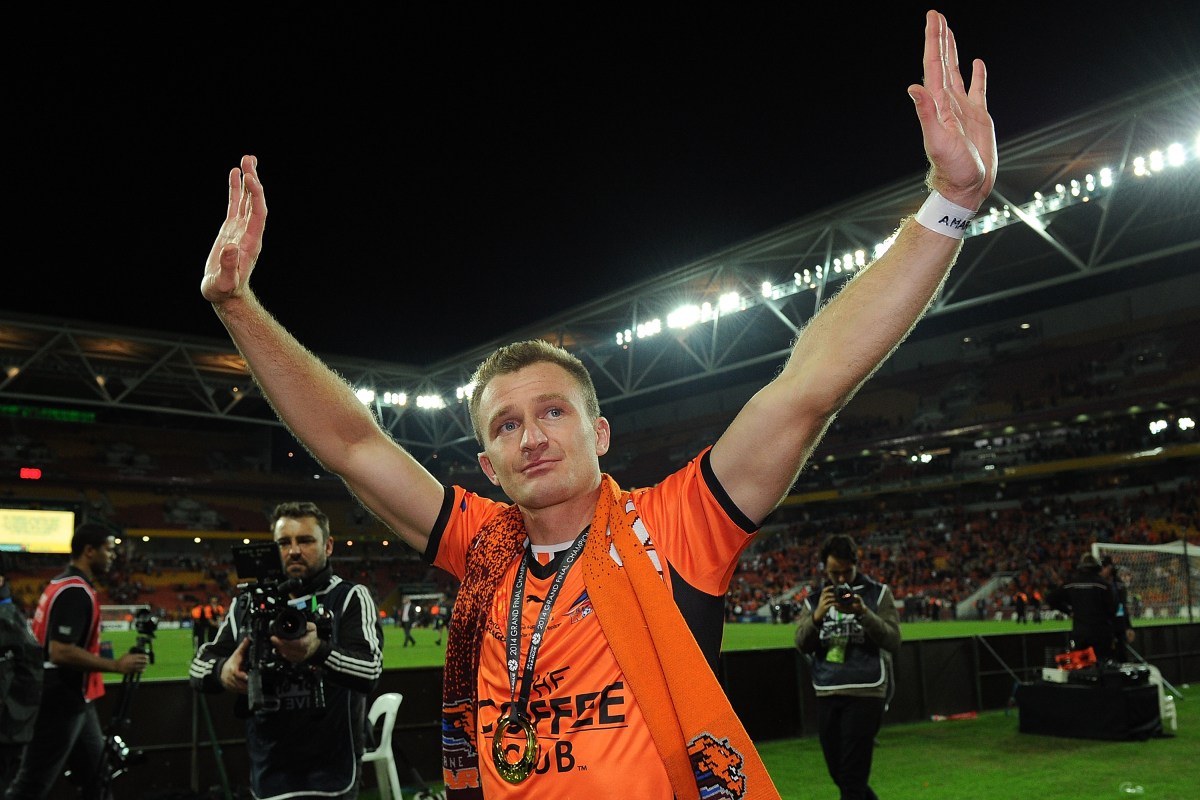
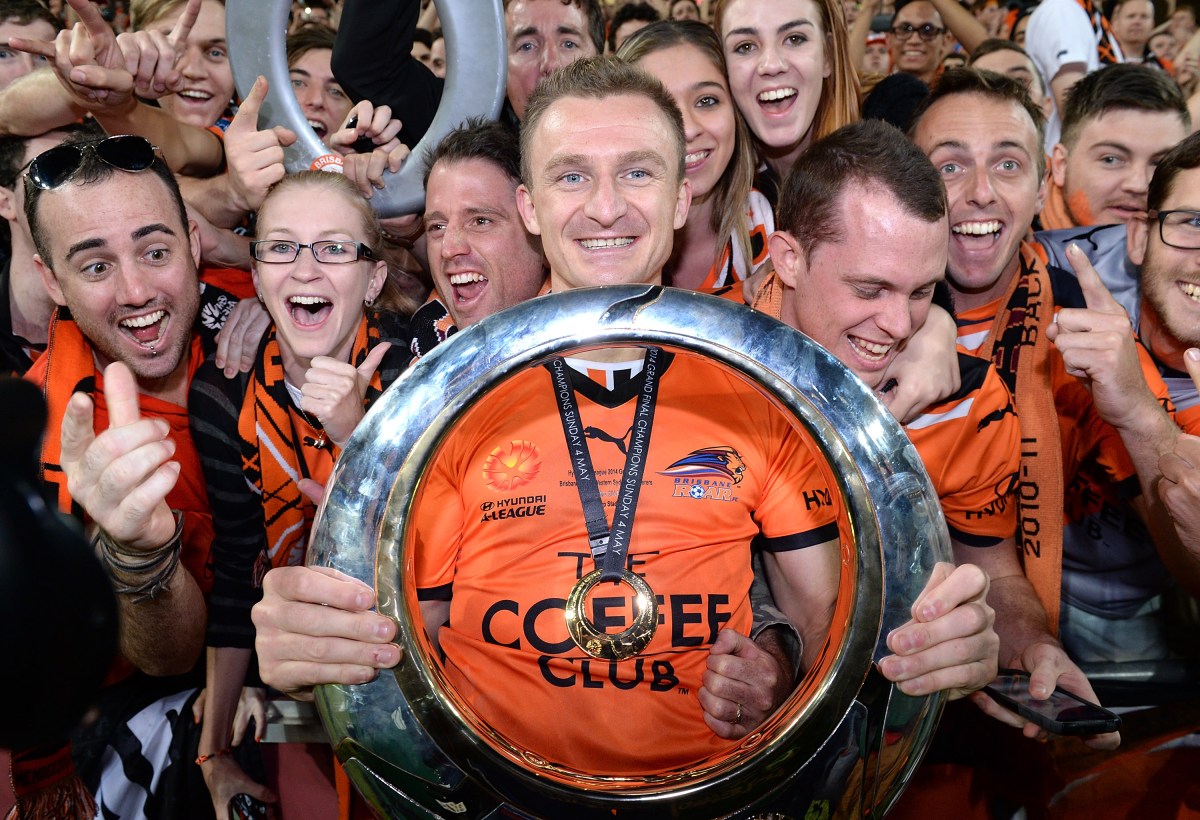

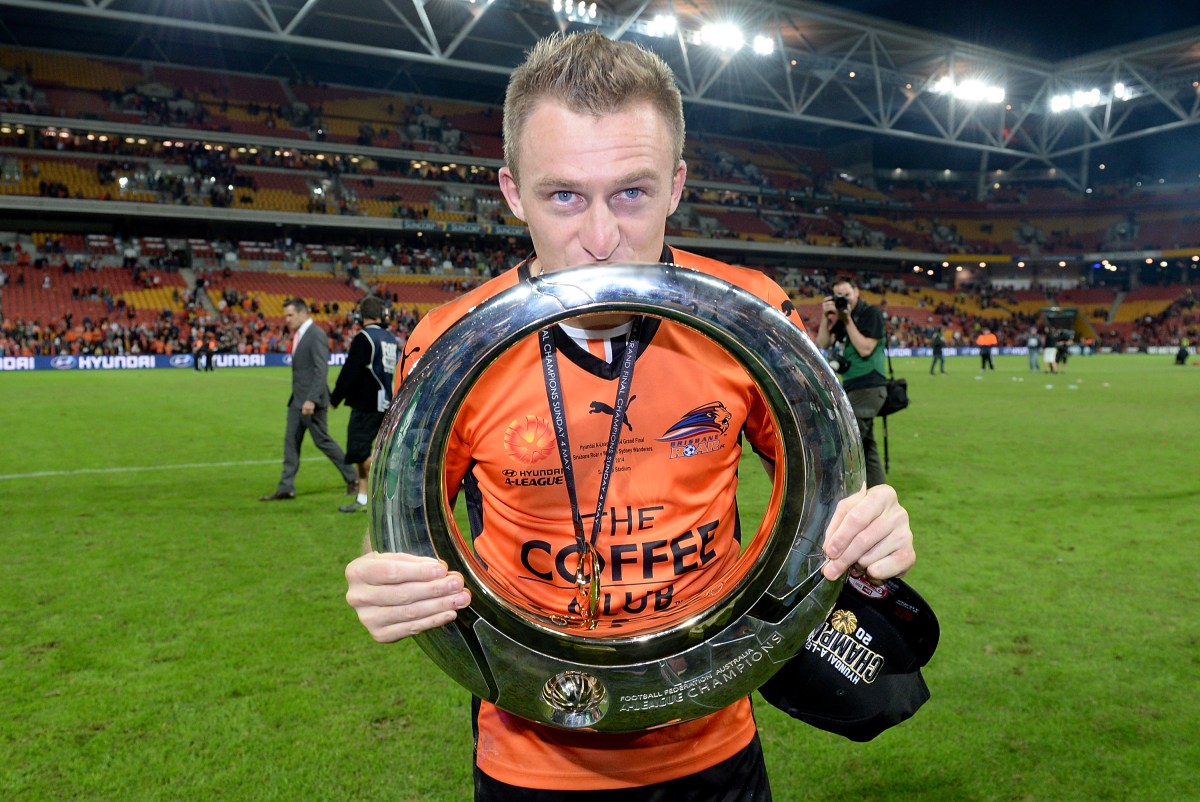
Vidosic was actually the man who spotted Berisha in Germany and recommended him to the Roar.
“My son (Dario Vidosic) was at Arminia a at that time. I went for a holiday to spend some time with him,” he said.
“I watched the training sessions. Besart was training there and they had a very good squad to be honest. A lot of good players. At that time, we didn’t really need any foreigners because we had our numbers. Probably more likely we didn’t have enough money to bring anyone else in. Then Matt McKay got a chance to go to Rangers, freed up some money and then there was an opportunity to bring in some foreigners in.
“I spoke to Josip Tadic and he was a striker, and Besart Berisha, who didn’t really play as a striker. You could see at training, the aggression and intensity in his movement. I saw that as something that could really work in Australia, something that could be powerful here.
“I spoke to him about coming to play for Brisbane Roar. He didn’t really want to come originally. He was talking to some other clubs but nothing materialised. I think it was (agent) John Grimaud who got in touch with him and he got him over. It wasn’t me who got the deal but but probably me being there and putting the seed in his head.”
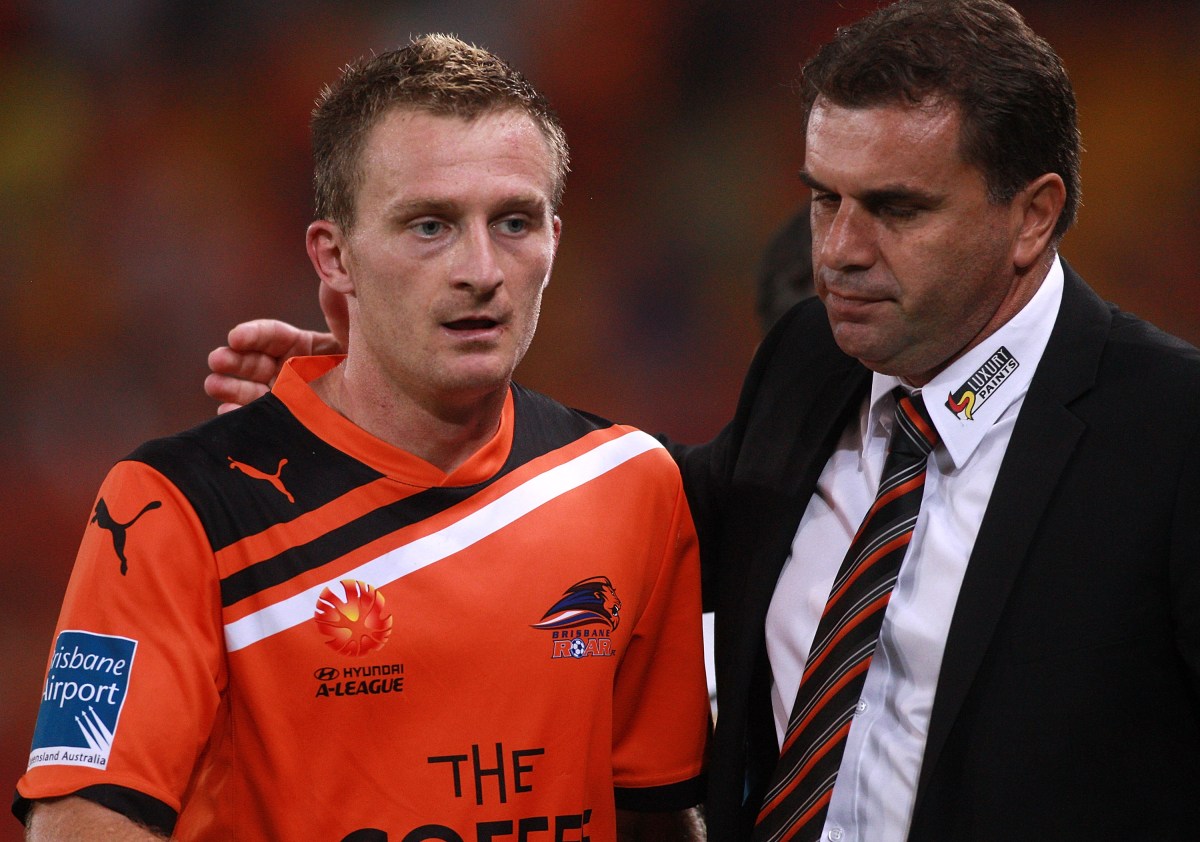
Vidosic added: “It was interesting. In pre-season, we lost Kosta Barbarouses, so we didn’t have any strikers to be honest. We experimented with a false nine, similar like they did at Barcelona at the time with Lionel Messi.
“It was really successful in pre-season. We were all excited and it worked quite well.
“Then Berisha comes and says we need to continue with a false nine and I said we can’t continue with false nine, we have a proper nine. We have to change that.
“Thank god we changed that and everything else is history.”
Carpenter, Catley and City women’s team
While this weekend is Vidosic’s first A-League Men Grand Final, he is no stranger to success with Melbourne City.
He led City women’s team to the 2020 Championship – a 2-0 win over Ante Juric’s Sydney FC.
This was a team boasting Matildas stars Lydia Williams, Kyah Simon, Steph Catley and Ellie Carpenter, as well as Aivi Luik, Rebekah Stott and Jess Fishlock.
Vidosic, who took charge of the women’s side in 2018-19, worked with some of Australia’s finest players and it is a priceless experience not lost on the veteran coach since switching back to men’s football.
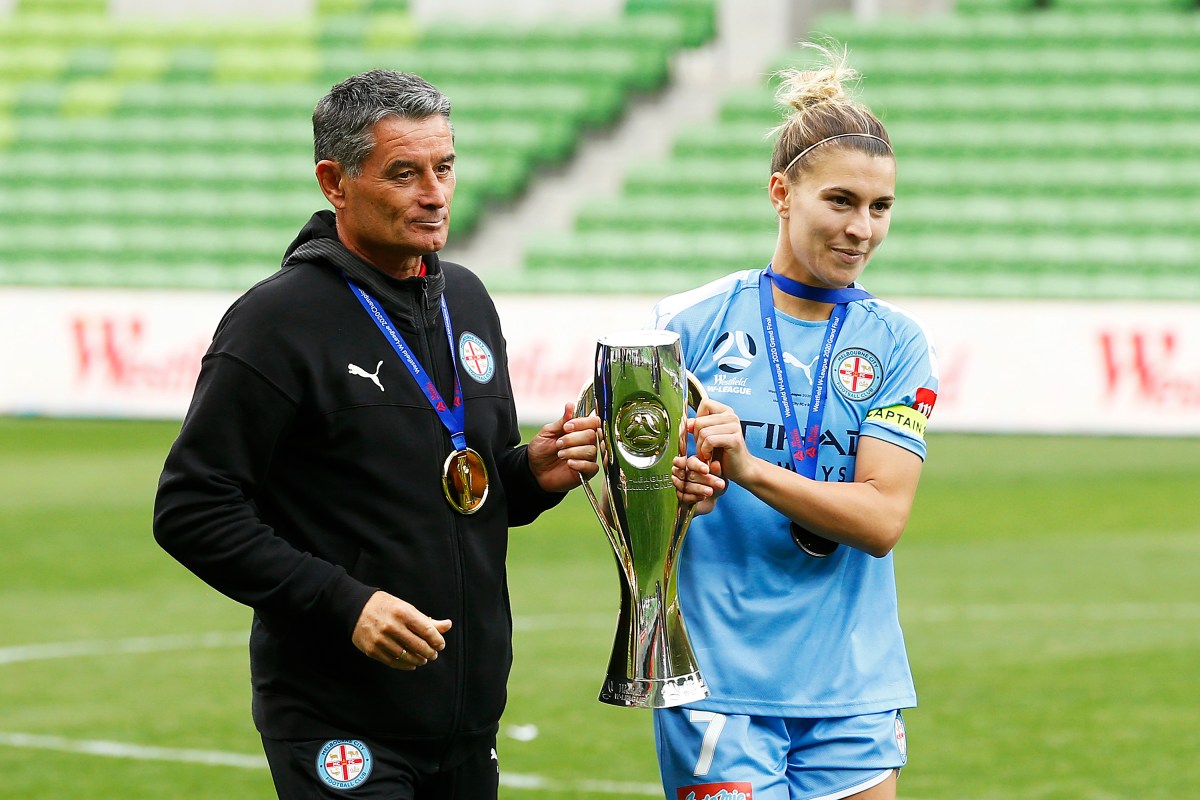
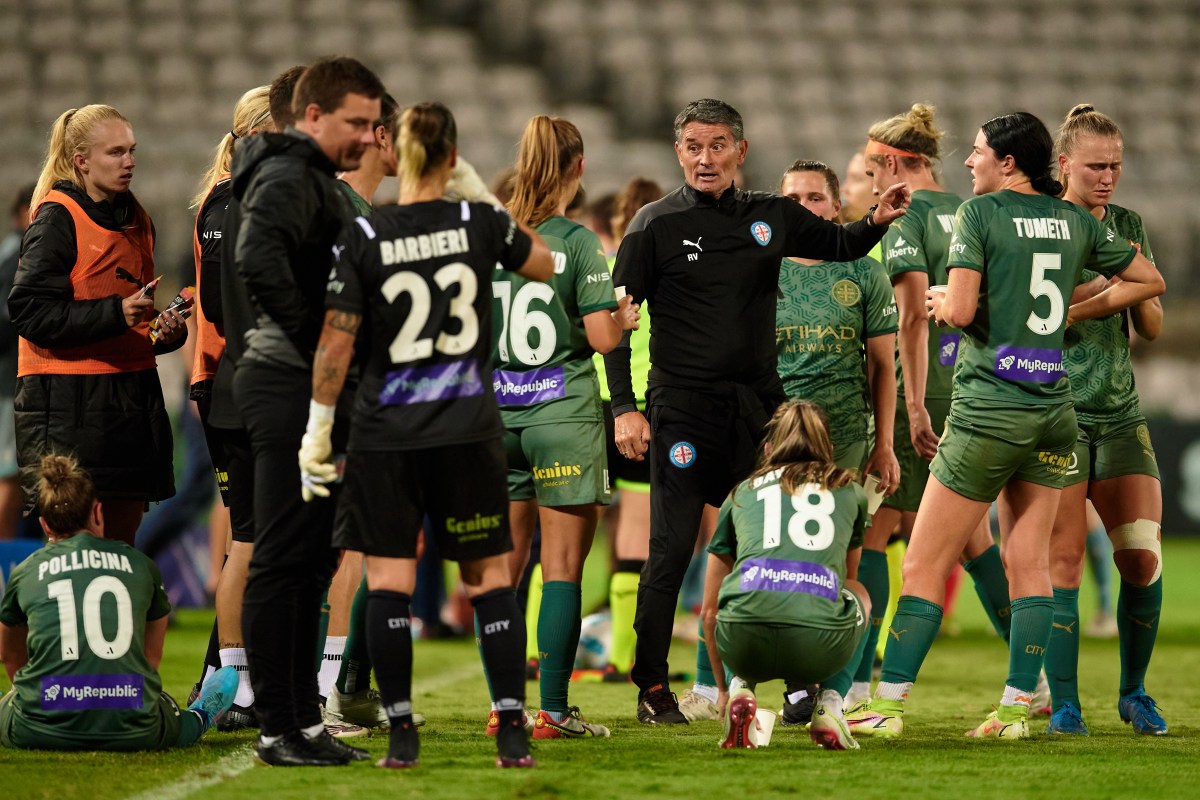
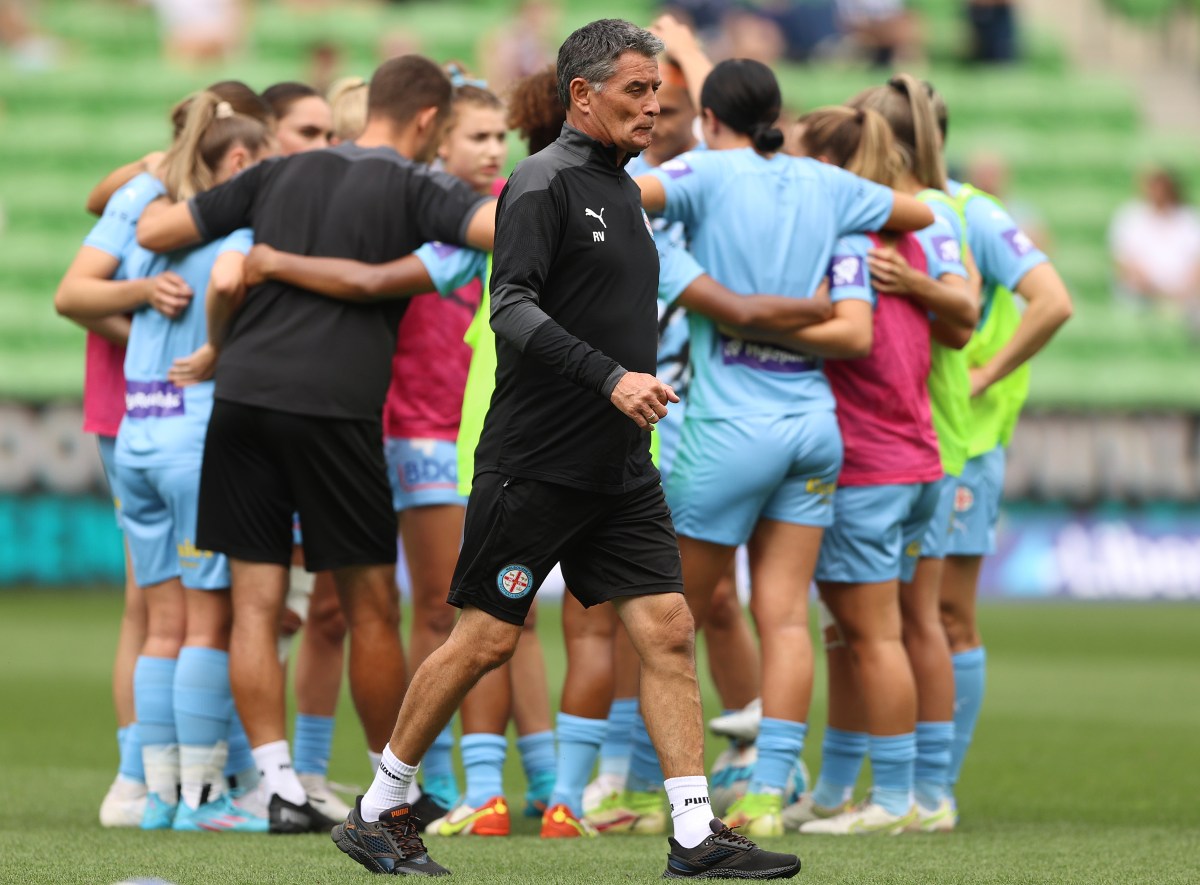
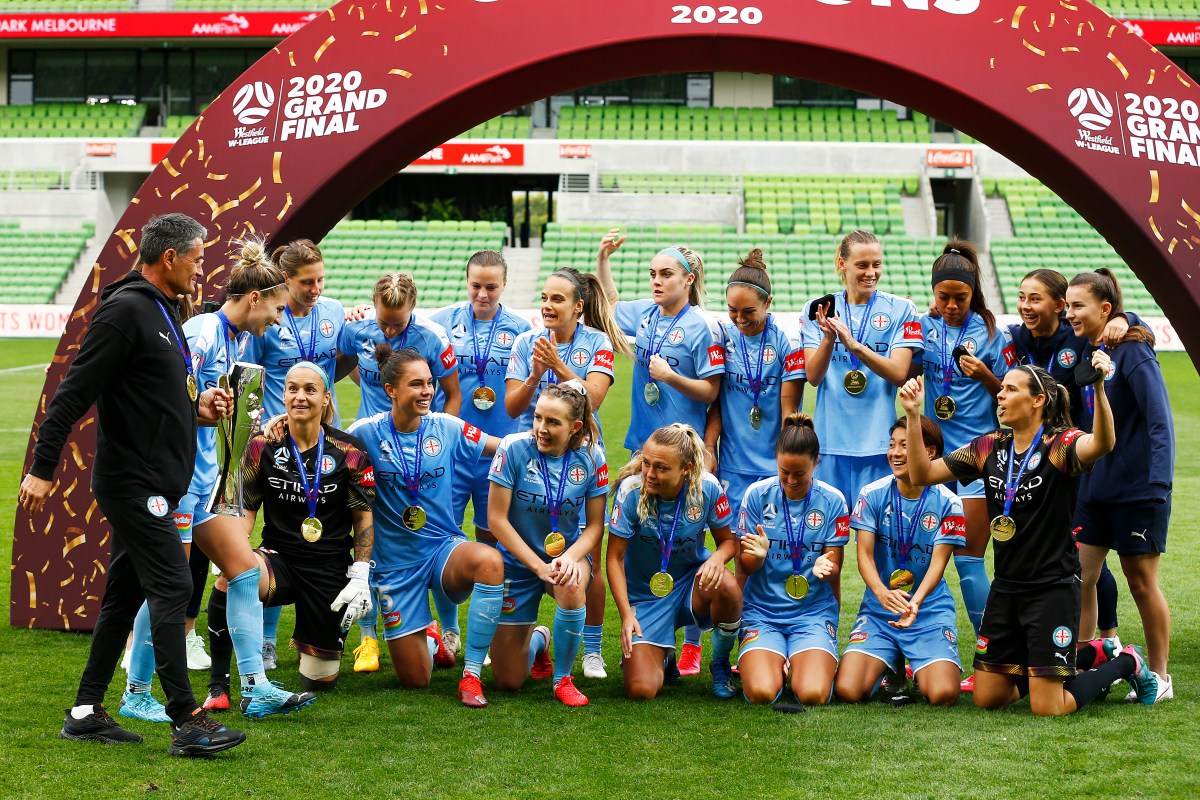
“With females, they mature earlier. You can have someone who is 15 turning 16 and can be as mature as boys when they’re 18-19. You can get more out of them from an early age,” he said.
“We’ve seen that with Ellie Carpenter – the perfect example. Physically she is fantastic, mentally she is strong, tactically she is excellent. She is so adaptable.
“For one year to coach her and be part of her journey and to see where she is now, it was an amazing experience for me and the people working with these players.
“Steph Catley is another one. She’s been a brilliant captain. She’s Melbourne City through and through. Fantastic girl, person and player. To see how successful she is in England at Arsenal, one of the biggest clubs in women’s football in the world. She is one of the leading players in that club.
“It just tells you we do have capacity to educate and produce those type of players. Probably more now in the women’s side than at the men’s side.”
While staying true to his principles, Vidosic is someone who is always evolving, like so many other coaches.
He likes to switch off from football, but he can’t get enough of the game in a bid to stay ahead of the curve and progress.
“The other day I woke up at 5am and watched Brighton v Manchester City,” Vidosic recalled.
“Then you kind of try to come up with some passing drills, small-sided games based on what you’ve seen. Brighton’s build-up… maybe Manchester City the way they press. All those things help you in your preparation for the next week or the following week.
“Or just draw something on a piece of paper that stays on your back table until you go back to it. I’m not that different to anyone else.
“We are always hungry for new practices, small-sided games, new learning. There’s more than enough information out there. Football is all about evolution and how can we improve. It’s not just having a new player, you can improve your game of course but what you as a coach can do to improve your players individually and collectively.
“At the moment, I’m the lucky one. I have a fantastic bunch of players who are in full form and full of confidence.
“They’re jumping out of their skin to play in the Grand Final but it doesn’t guarantee success this season or next. If you don’t try to improve, you’ll go backwards.”
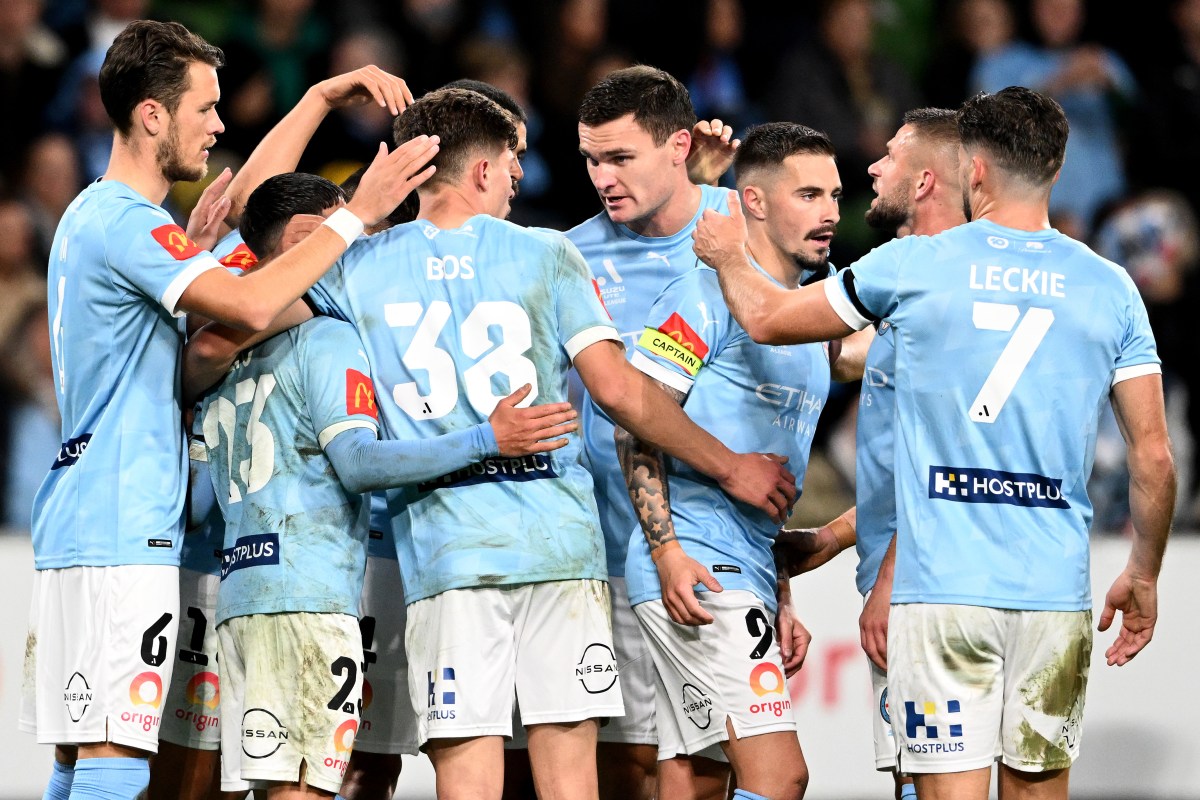
While the Grand Final is front and centre, Melbourne City are already planning for 2023-24.
It is only natural with Jordy Bos off to Westerlo and Scott Jamieson retiring; there is also uncertainty over the futures of stars Marco Tilio, Aiden O’Neill and Tom Glover.
“There’s the (AFC) Champions League,” Vidosic said. “We’re going to lose several players, so we need to replace them. There’s all sorts of things happening behinds the scenes that maybe I wasn’t part of in the past.
“(I was) more so finding those players on the female side of things, now it’s a bit different. You have scouting reports that are prepared for you. When you’re with the women’s team, you have to do your own scouting etc. It’s rewarding when you unearth a player on your own.”

